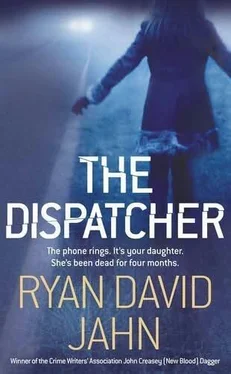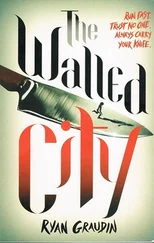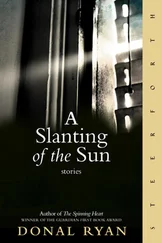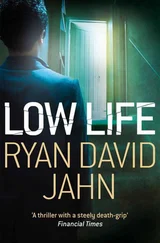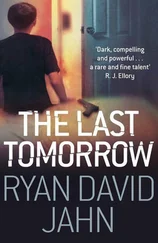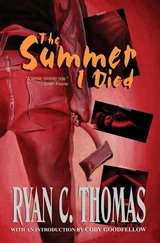Ryan Jahn - The Dispatcher
Здесь есть возможность читать онлайн «Ryan Jahn - The Dispatcher» весь текст электронной книги совершенно бесплатно (целиком полную версию без сокращений). В некоторых случаях можно слушать аудио, скачать через торрент в формате fb2 и присутствует краткое содержание. Год выпуска: 2011, Издательство: PENGUIN group, Жанр: Триллер, на английском языке. Описание произведения, (предисловие) а так же отзывы посетителей доступны на портале библиотеки ЛибКат.
- Название:The Dispatcher
- Автор:
- Издательство:PENGUIN group
- Жанр:
- Год:2011
- ISBN:нет данных
- Рейтинг книги:5 / 5. Голосов: 1
-
Избранное:Добавить в избранное
- Отзывы:
-
Ваша оценка:
- 100
- 1
- 2
- 3
- 4
- 5
The Dispatcher: краткое содержание, описание и аннотация
Предлагаем к чтению аннотацию, описание, краткое содержание или предисловие (зависит от того, что написал сам автор книги «The Dispatcher»). Если вы не нашли необходимую информацию о книге — напишите в комментариях, мы постараемся отыскать её.
The Dispatcher — читать онлайн бесплатно полную книгу (весь текст) целиком
Ниже представлен текст книги, разбитый по страницам. Система сохранения места последней прочитанной страницы, позволяет с удобством читать онлайн бесплатно книгу «The Dispatcher», без необходимости каждый раз заново искать на чём Вы остановились. Поставьте закладку, и сможете в любой момент перейти на страницу, на которой закончили чтение.
Интервал:
Закладка:
‘What happened?’ Ian said as he approached. ‘Where’s Maggie?’
Jeffrey and Davis both turned toward him, but neither said anything.
‘Where’s Maggie?’
More silence.
Ian grabbed Jeffrey by the shoulders, fingers digging into the flesh of them, and shook him. ‘Where the fuck is Maggie?’ he said.
‘Honey,’ Debbie said, ‘don’t.’
‘Ian,’ Chief Davis said and put a hand on his shoulder.
Ian turned on Davis and knocked his hand away with the swipe of an arm. The old man blinked like an owl behind his glasses and mustache but said nothing. He simply tilted his Stetson back on his head and hooked his thumbs in his pockets and rocked back on the heels of his boots and looked away. Debbie, though, did not look away.
‘Don’t touch me,’ Ian said to both of them and neither.
Then he turned back to his son.
‘Jeffrey,’ he said, ‘where is Maggie?’
Jeffrey looked up at him. Ian saw for the first time that there was something like terror in his eyes. They were alive with it. It danced in them like flame in a night window. Then, once more, he dropped his gaze to his feet. He had on a pair of slippers. They were blue corduroy, darkened by the damp grass. They were one of his Christmas presents from the year before. Deb had picked them up from a drugstore while grabbing a prescription for antibiotics and they’d tossed them into the box they mailed to California with the rest of his gifts, as well as a cordial if distant holiday card for Lisa, Jeffrey’s mother and Ian’s second wife.
‘She’s gone,’ Jeffrey said finally, staring down at those blue slippers.
‘Gone?’
Ian was expecting an injury, a broken arm, fingers burned on the stovetop, a bad cut-but gone? For a moment his mind could not even process the word.
Without looking up at him Jeffrey nodded.
‘Gone where?’
A pathetic shrug.
‘I don’t. . I put her to bed. I was watching David Letterman and. . and I heard a noise in her bedroom like she was playing around. I yelled at her to calm down and go to sleep. I yelled at her. Then it got really quiet and I started to feel bad about yelling. I went back to make sure she was okay, to say sorry if I’d hurt her feelings or. .’ A shrug. ‘But when I went to her bedroom. . she was. .’ He licked his lips. ‘She was gone.’ He glanced up once as he finished talking, but quickly looked down again.
Ian walked past Jeffrey and Chief Davis, knocking against Davis’s shoulder, and into the house. Walked straight to Maggie’s room. To what was Maggie’s room. To what is now, in this different world, like that old world but not quite the same, the twins’ room: refurnished, repainted, re-carpeted, hardly the same room at all. It was empty. He walked to the bed and put the back of his hand against the dent in her pillow. It was cold. There was no warmth left in it at all. Beneath it, a tooth. Waiting for a tooth fairy that would never come. He walked to the window. It was open and a breeze was blowing against the curtains. The screen frame was still in the window but the screen had been cut out. A few loose strings still hung from the frame. The rest of it lay on the grass just outside. When the wind blew it shifted, looking like a living shadow.
‘Ian,’ Chief Davis said behind him, ‘you really shouldn’t be in here. I got Sheriff Sizemore sending down a couple people from Mencken to pull evidence.’
Ian nodded but continued to stare out at the night. The wind blew. The screen shifted. After a few moments of silence he heard Chief Davis leave the room. And after a few more he turned away from the window and followed.
He was thirty-eight then. Now he is forty-five, though he sometimes feels older. Three marriages, one abortion, two children (a son he hasn’t spoken to in over three years and a daughter he’s feared dead for twice as long), seven broken bones (four fingers, a collar-bone, his nose, and a toe), one gunshot wound, four car accidents, three dead pets, and two dead parents: yes, sometimes he feels older than his years.
When you glance over your shoulder and look at what you’re pulling behind you in your red wagon it can be hard not to feel overwhelmed by the weight of it all.
He wakes in the morning with a neck that won’t turn and a right hand that’s already beginning to feel arthritic, with a swollen right knee that won’t bend for the first hour of the day, with a sore back and a mind he wishes he could scrub the memories from. He wakes and showers and dresses. He shaves every other day. He’s blond and can get away with that one bit of laziness concerning his appearance. He eats two soft-boiled eggs (and sometimes a piece of toast). He drinks a pot of coffee. He goes to work, where he sits for eight hours and plays solitaire and answers calls. Occasionally he goes out on calls himself if someone needs backup and it’s close by (keeps a bubble light in his glove box). He is technically a police officer and wears the uniform every day. But that is the result of the city council not approving the hire of a civilian dispatcher and not a difference of job function. Mostly Ian simply sits in the office and takes calls. Sometimes the calls are ugly: husbands collapsed while feeding the horses, or maybe kicked in the head while changing a shoe; sons who accidentally severed a thumb while sawing wood; wives who spilled two gallons of simmering lye soap down the front of their dresses. And it seems those bad calls come one after another, piling up during the course of a day. Some black luck blown into town on the wind. By the time those days are over he feels hollow as a Halloween pumpkin. He drives to the Skyline Apartments and parks his car. He locks himself inside his apartment. He watches TV. Situation comedies. After a few hours of this, during which he drinks six bottles of Guinness and, if it’s Friday, one small glass of scotch (usually Laphroaig), never more, he falls asleep on the couch.
Five or six hours later he wakes and repeats the process.
But not today. Today is different. He would normally leave at four, but today he walks out the door at three fifteen.
He gets to his feet and walks into the police station’s front room.
Chief Davis is right where Ian thought he would be, leaning back in his chair with his boots kicked up on his desk, Stetson tipped over his eyes. He has a reputation for laziness, but he’s on call twenty-four hours a day, and is often out nights dealing with drunks and wife-beaters, so he catches naps when he can. Ian himself doesn’t count that as laziness.
‘Chief,’ he says.
Chief Davis groans and wipes at a bit of drool at the corner of his mouth.
‘Chief.’
Davis sits up and tilts back his Stetson. He knuckles his eyes, pulls his glasses from his pocket, and sets them on his nose. He rubs the palm of his hand down the front of his face, then looks up at Ian, blinking.
‘Ian.’
‘I just got a call.’
‘Yeah?’
‘From Maggie.’
‘From-’ Blink, blink. ‘From your daughter ?’
Ian nods.
‘You sure?’
Another nod. ‘She called from a pay phone front of Main Street shopping center. She’s alive. I sent Diego down just now, and county guys are on the way, but I’m going too. Maybe you could keep point on the phones?’
Davis shakes his head.
‘No,’ he says. ‘You know I gotta deal with Sizemore. Thompson can handle the phones.’
Steve Thompson is Bulls Mouth’s other daytime police officer. He’s good police, so far as Ian can tell, when there’s something happening, but otherwise he tends to wander off. After four o’clock, there are only two officers on duty at a time-one of the three part timers to take calls and a guy in a radio car. And of course they call Chief Davis if necessary. Four to midnight is Armando Gonzales and one of the part timers. Used to be Diego Peña, but Peña switched to days a while back. Went from part time on the phones to full time to days in quick succession. From midnight to eight is Ray Watkins.
Читать дальшеИнтервал:
Закладка:
Похожие книги на «The Dispatcher»
Представляем Вашему вниманию похожие книги на «The Dispatcher» списком для выбора. Мы отобрали схожую по названию и смыслу литературу в надежде предоставить читателям больше вариантов отыскать новые, интересные, ещё непрочитанные произведения.
Обсуждение, отзывы о книге «The Dispatcher» и просто собственные мнения читателей. Оставьте ваши комментарии, напишите, что Вы думаете о произведении, его смысле или главных героях. Укажите что конкретно понравилось, а что нет, и почему Вы так считаете.
